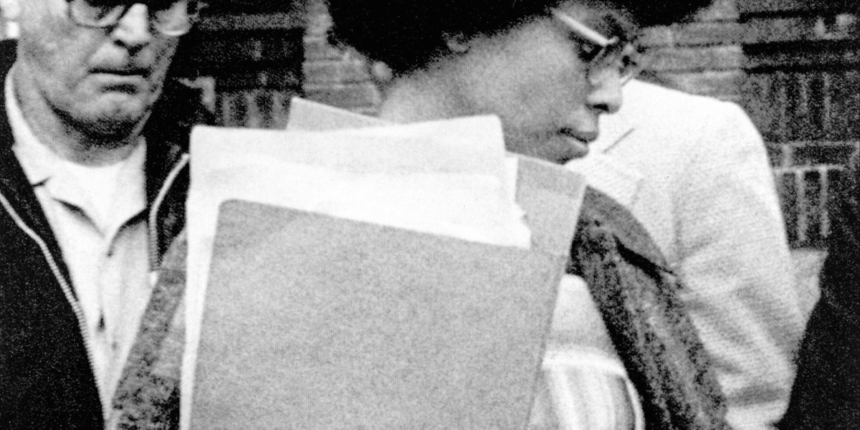Assata Shakur, a Black liberation activist who was given political asylum in Cuba after her 1979 escape from a U.S. prison where she had been serving a life sentence for killing a police officer, has died, her daughter and the Cuban government said.
Shakur and two others were involved in a gunfight with New Jersey State Police troopers following a highway traffic stop on May 2, 1973.
Trooper Werner Foerster was killed and another officer was wounded, while one of Shakur’s companions was also killed.
Shakur, who was at the time wanted on several felonies, including bank robbery, fled but was eventually apprehended.
The New York City native was found guilty in 1977 of murder, armed robbery and other crimes and was sentenced to life in prison, only to escape in November 1979.
Members of the Black Liberation Army, posing as visitors, stormed the Clinton Correctional Facility for women, took two guards hostage and commandeered a prison van to break Shakur out.
She disappeared before eventually emerging in 1984 in Cuba, where Fidel Castro granted her asylum, according to the FBI.
Offering Shakur asylum was one of the most famous examples of Cuba aligning itself with what it describes as revolutionary forces struggling against the oppressive capitalist empire to the north.
Much like Cuba supported anti-colonial and left-wing forces in Africa, Central and South America, the Cuban government saw the armed Black liberation movement in the U.S. as part of a global revolutionary struggle.
New Jersey State Assemblyman Michael Inganamort, who sponsored legislation last year calling on Cuba to extradite Shakur, lamented Friday that “justice was never served in the senseless murder of Trooper Foerster.”
“It is our duty to fight for our freedom. It is our duty to win,” Shakur wrote in “Assata: An Autobiography,” originally published in 1988. “We must love each other and support each other. We have nothing to lose but our chains.”
Black Lives Matter Grassroots Inc., a collective of racial justice activists from around the U.S., paid tribute to Shakur on Friday.
Shakur’s influence extended into the music world. She was famously close to the family of late rapper Tupac Shakur, who had considered her a godmother.
Grammy award-winning rapper Common tells Shakur’s story in his 2000 song “A Song for Assata.” In 2011, Common’s invitation to a White House poetry event during the Obama administration drew outrage from conservatives and law enforcement groups who felt it was disrespectful to Foerster’s family and police officers broadly.
___
Associated Press writers Aaron Morrison and Michael Weissenstein in New York contributed to this story.









